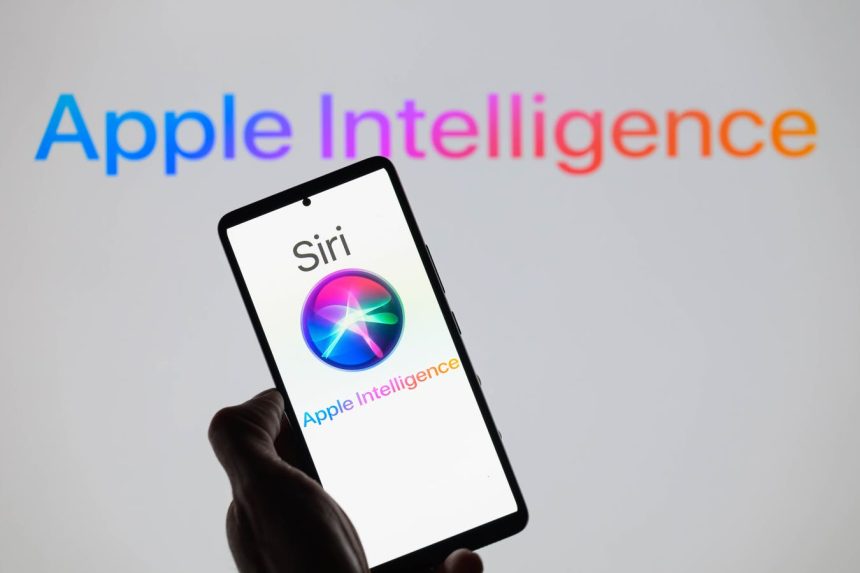The dawn of the “agentic era” in 2025 promises to revolutionize the functionality of voice assistants, transforming them from simple task managers into powerful AI agents capable of complex actions and problem-solving. Since their inception, voice assistants like Google Assistant, Amazon’s Alexa, and Apple’s Siri have largely fallen short of their initial promise to seamlessly integrate into our lives, often stumbling on more complex requests and defaulting to basic functionalities like setting timers or playing music. However, the recent advancements in generative AI offer a significant leap forward, empowering these platforms to finally deliver on their potential. AI agents, specifically designed to perform tasks on behalf of the user, offer a glimpse into a future where voice assistants can manage schedules, book travel arrangements, and even facilitate complex communications, acting as true digital personal assistants.
This shift towards agentic technology is rapidly gaining momentum, attracting significant investment and sparking a competitive race among tech giants and nimble startups alike. Over 470 platforms are now dedicated to developing AI agent technology, with an 81% increase in deal count for AI agent startups in the past year, reflecting an $8 billion investment in this burgeoning field. This surge in activity underscores the industry’s recognition of the transformative potential of AI agents, not only for consumers but also for businesses, envisioning applications in customer service, software development, and more. The challenge lies in achieving a higher fidelity of orchestration, creating more human-like conversational experiences, and seamlessly accessing the data and actions users require.
Established tech giants, with their existing voice assistant infrastructures and access to powerful AI models, hold a significant advantage in this race. Google is leveraging its Gemini model to enhance voice search capabilities, while Apple has partnered with OpenAI to integrate ChatGPT into Siri, and Amazon has invested heavily in Anthropic, the developer of the Claude chatbot. These strategic moves highlight the commitment of major players to elevate their voice assistants to the next level of functionality. While these large language models form the backbone of many AI services, true advancements in voice AI hinge on the development of dedicated voice models trained on audio data, enabling them to capture nuances like cadence and emotion, ultimately leading to more natural and effective interactions.
However, skepticism remains regarding the transformative power of AI agents. Some experts believe that while these enhancements may incrementally improve current voice assistants, they may not represent a significant enough leap to foster widespread trust and adoption for more complex tasks. The challenge lies in overcoming the hurdle of user confidence in delegating significant tasks to AI, particularly given past limitations. Current usage of voice assistants remains largely confined to simple tasks with predictable outcomes, highlighting a reluctance to entrust them with more complex or sensitive actions.
Despite this skepticism, advancements in voice AI are poised to revolutionize the interaction between users and applications. Improved latency and natural language understanding will empower users to issue voice commands directly to apps, streamlining tasks like returning an online purchase or generating to-do lists. This integration of voice functionality into everyday applications promises to enhance user experience and accessibility. The evolution of voice AI extends beyond mere functionality, opening doors for innovation in hardware as well. Smart glasses, once a futuristic concept plagued by privacy concerns and limited utility, are now being reimagined with AI agent integration. Google’s Project Astra showcases glasses that can access information contextually, retrieving door codes or providing information about the surrounding environment through voice commands. Similarly, Facebook’s Orion glasses utilize voice and hand gestures to interact with AI tools, offering a glimpse into a future where technology seamlessly integrates with our physical reality.
The increasing adoption of voice messaging, particularly among younger demographics, further underscores the growing preference for voice-based interaction. The potential of voice agents to bridge the digital divide and enhance accessibility for individuals with limited literacy skills further strengthens the case for this emerging technology. Voice emerges as a powerful, untapped interface for computing, offering a more natural and intuitive way to interact with technology. The advancements in AI, coupled with the growing comfort with voice interaction, are poised to transform not only the functionality of voice assistants but also the broader landscape of human-computer interaction, ushering in an era where technology becomes more seamlessly integrated into our daily lives.



